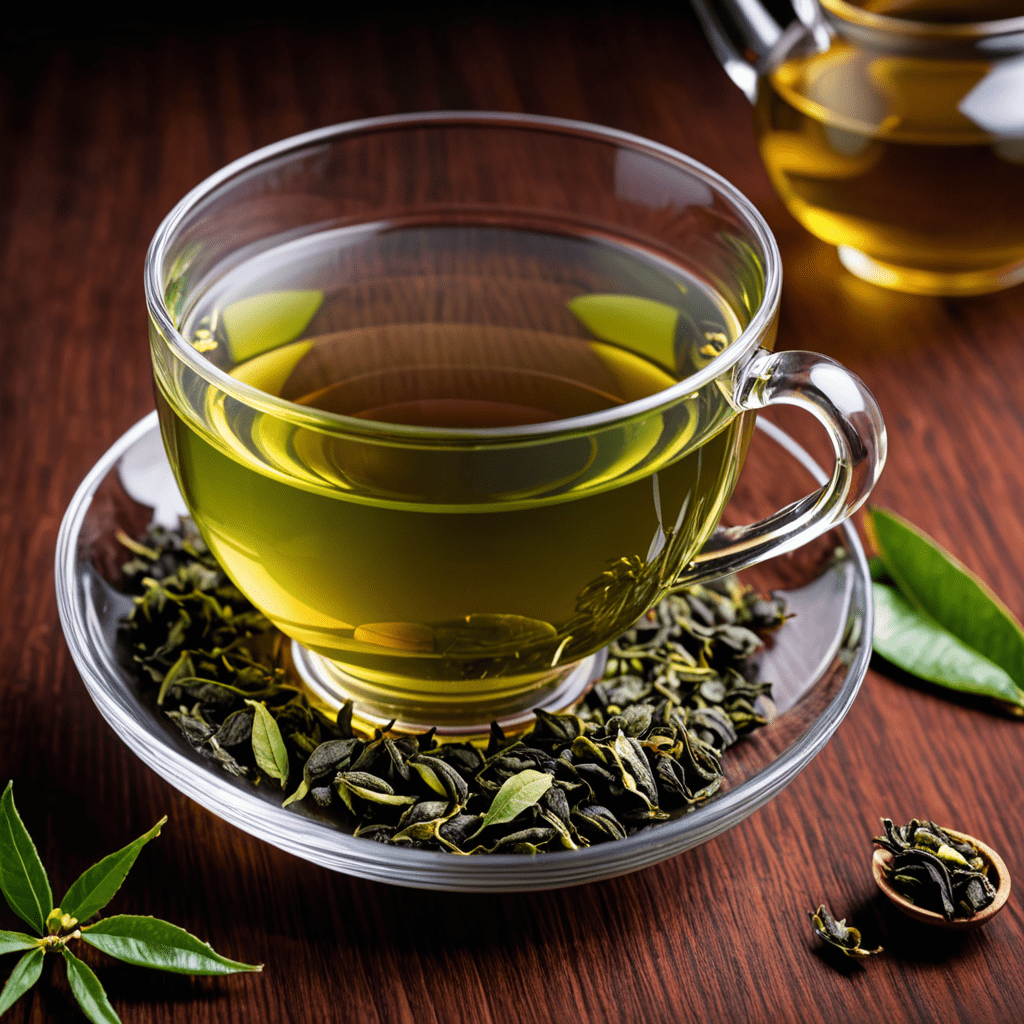
Introduction: The Allure of Chai Tea
Chai tea, a fragrant and flavorful beverage originating from India, has captivated tea enthusiasts worldwide. Its unique blend of spices, including cinnamon, cardamom, ginger, cloves, and black pepper, creates an aromatic experience that has both culinary and medicinal value. Beyond its taste and aroma, chai tea has gained recognition for its soothing effects on the mind, attributed to a combination of its antioxidant properties, L-theanine content, and stimulating yet calming qualities.
Chai Tea: A Blend of Aromatic Spices
The key to chai tea's distinct flavor profile lies in the harmonious blend of aromatic spices used in its preparation. Cinnamon, with its sweet and warm notes, forms the foundation of the spice blend. Cardamom adds a distinct floral and slightly minty flavor, while ginger brings a touch of spiciness and warmth. Cloves contribute a subtle yet assertive aroma, and black pepper adds a touch of piquancy that balances the sweetness of the other spices. These spices, combined in varying proportions, create a symphony of flavors that tantalize taste buds and stimulate the senses.
The Soothing Effects of Tea on the Mind: Scientific Foundations
Research has delved into the scientific underpinnings of tea's soothing effects on the mind. Tea, derived from the leaves of the Camellia sinensis plant, contains an array of bioactive compounds, including polyphenols, which possess antioxidant properties. Antioxidants play a crucial role in combating oxidative stress, a process linked to cellular damage and inflammation throughout the body, including the brain. By counteracting oxidative stress, tea may contribute to cognitive well-being and reduce the risk of neurodegenerative conditions.
Antioxidant Power: Tea's Role in Combating Oxidative Stress
Oxidative stress occurs when there is an imbalance between the production of free radicals, unstable molecules that can damage cells, and the body's ability to counteract their effects. Antioxidants, like those found in tea, help neutralize free radicals, protecting cells and tissues from oxidative damage. This protective role is particularly relevant to the brain, as neurons are highly susceptible to oxidative stress due to their high metabolic activity and oxygen consumption. By combating oxidative stress, tea may support neuronal health and preserve cognitive function.
L-Theanine in Chai Tea: Calming the Mind without Drowsiness
L-theanine, an amino acid naturally present in tea leaves, plays a significant role in the soothing effects of chai tea. L-theanine has been shown to promote relaxation and calmness without inducing drowsiness. Its ability to cross the blood-brain barrier allows it to directly interact with neurochemical pathways involved in mood and cognitive function. By increasing the production of alpha brain waves associated with relaxation, L-theanine helps reduce stress and anxiety, fostering a sense of tranquility.
6. Caffeine's Stimulating Effect: Balanced by L-Theanine
While chai tea contains caffeine, its stimulating effects are balanced by the presence of L-theanine. Caffeine is a known stimulant that can increase alertness and focus. However, excessive caffeine consumption can lead to jitteriness, anxiety, and sleep disturbances. L-theanine's calming properties counteract these negative effects, resulting in a balanced and sustained energy boost without the unpleasant side effects of caffeine alone.
7. Chai Tea and Cognitive Performance: Sharpening Focus and Concentration
The combination of caffeine and L-theanine in chai tea has been shown to enhance cognitive performance. Caffeine improves alertness and attention, while L-theanine promotes relaxation and reduces anxiety. This synergistic effect helps sharpen focus, improve concentration, and enhance problem-solving abilities. Studies have demonstrated that consuming chai tea can boost cognitive function, particularly in tasks requiring sustained attention and mental agility.
8. Emotional Regulation: Chai Tea as a Natural Mood Booster
Beyond its cognitive benefits, chai tea has also been found to have mood-boosting properties. L-theanine has been shown to increase the production of serotonin and dopamine, neurotransmitters associated with feelings of happiness, contentment, and well-being. Chai tea also contains antioxidants that have anti-inflammatory effects, which may contribute to reducing stress and improving overall mood.
9. Ritual and Relaxation: The Mindful Experience of Chai Tea
The preparation and consumption of chai tea can be a mindful and relaxing experience. The process of measuring, blending, and steeping the tea leaves engages the senses and promotes a sense of calm. The warmth and aroma of the freshly brewed tea create a comforting and inviting atmosphere, encouraging relaxation and self-care. The act of sipping chai tea mindfully, savoring its taste and aroma, can foster present-moment awareness and reduce stress.
10. Conclusion: Chai Tea's Soothing Embrace on the Mind and Soul
Chai tea, with its blend of aromatic spices and unique combination of caffeine and L-theanine, offers a soothing embrace for the mind and soul. Its antioxidant properties, calming effects, cognitive benefits, and mood-boosting qualities make it a natural choice for those seeking a holistic approach to well-being. Whether enjoyed as a daily ritual or an occasional indulgence, chai tea invites us to unwind, relax, and embrace the simple pleasures that life has to offer.
FAQs
Q: What are the key spices used in chai tea?
A: Cinnamon, cardamom, ginger, cloves, and black pepper are the key spices used in chai tea.
Q: Does chai tea contain caffeine?
A: Yes, chai tea contains caffeine, but its effects are balanced by the presence of L-theanine, which promotes relaxation and reduces anxiety.
Q: How does chai tea help improve cognitive performance?
A: The combination of caffeine and L-theanine in chai tea enhances alertness, focus, and concentration, improving cognitive function and problem-solving abilities.
Q: Can chai tea help reduce stress and anxiety?
A: Yes, chai tea contains L-theanine, which has been shown to increase the production of serotonin and dopamine, neurotransmitters associated with feelings of happiness and well-being. It also has anti-inflammatory effects that may contribute to reducing stress and anxiety.
Q: Is chai tea suitable for all individuals?
A: While chai tea is generally safe for most people, individuals with caffeine sensitivity or certain medical conditions should consult their healthcare provider before consuming chai tea regularly.

